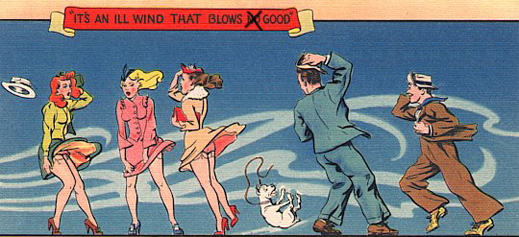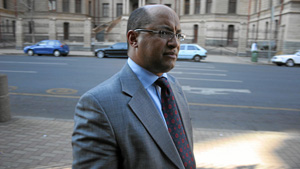
By John Helmer, Moscow
The attempt by the Evraz steel group, owned by Roman Abramovich and others, to sell its South African steelmaking asset, Highveld Steel & Vanadium, for double its market value appears to have failed. The deadline Evraz had earlier announced for closing the deal with a South African front company called Nemascore expired on June 30. On July 2, Tatiana Drachuk, the Evraz spokesman, added: “The market will be informed if any decision is taken.”
In March Evraz said it had accepted an offer of $320 million for its 85.12% stake in Highveld. At the time the market value of this bloc of shares on the Johannesburg Stock Exchange was the equivalent of $112 million. The offer triggered a sharp rise in Highveld’s share price, but it has since fallen by several degrees. The current market capitalization of the company is $180.3 million; the Evraz stake, $153.4 million.
Evraz has refused to explain such a high premium above market value for the loss-making asset. In December Evraz said it valued Highveld’s gross assets at “R3,667 million (approximately US$396 million).” Highveld’s liabilities at the same time totalled R1,929 ($193 million). The net asset figure was thus R1,738 million. The subsequent devaluation of the South African rand makes that worth about $174 million today, so Evraz’s current share would be equivalent to $148 million.
Evraz’s financial report for 2012 combines Highveld with Vitkovice, its Czech steelmill, as assets the Russian steel and coal group is planning to sell off. According to the report, Evraz’s accountants were anticipating making an $83 million loss on the combination. “At 31 December 2012, the disposal groups held for sale consisted mostly of the assets and liabilities of EVRAZ Vitkovice Steel and EVRAZ Highveld Steel and Vanadium Limited (“EHSVL”), which the Group plans to sell in 2013. The difference between the carrying value of the net assets of the subsidiaries and the expected consideration amounting to $83 million was recognised as a loss on disposal groups classified as held for sale.” The calculation at page 69 of this report indicates the assets of Highveld and Vitkovice were together worth $930 million; their combined liabilities added up to $478 million; their net asset value, $452 million.
If Evraz genuinely thought it could realize $320 million in cash for Highveld when it composed that report, it must also have been thinking Vitkovice was worth just $132 million. In 2005, when Evraz acquired Vitkovice with a low bid in a controversial privatization award of the Czech government, it paid the equivalent of $290 million. In 2006, when Evraz bought Highveld from Anglo American Corporation, it paid $678 million for 79% of the shares, and paid $77 million for another 6%.
Whatever numbers have been supposed for the sale of Highveld, their probability has been dwarfed by the improbability of the Nemascore group meeting the deal price. According to Drachuk for Evraz, “details of the negotiations are confidential, so we do not want to comment on them. The price of the transaction was the result of agreements between the parties.”
Three individuals have been identified so far as associated with the newly minted black empowerment enterprise, but not one has a history relevant to running a steelmill, nor a credit rating good for several hundred million dollars. The key Nemascore executive, Linda Makatini, has been a lawyer associated with Jacob Zuma, the current President of South Africa. That association, and Makatini’s refusal to answer questions on the deal, have encouraged South African suspicion of irregularities. For the archive on Nemascore, read here.
 When South Africa’s Financial Mail tried probing Nemascore, it was referred to Michael Hulley (right). He is also a personal lawyer for Zuma, and official legal advisor. He has been accused in the South African press of involvement in rigged government agency tendering; in the financial collapse of a goldmine company in which a Zuma family member, Khulubuse Zuma, was a director; and in the award of oil concessions in the Democratic Republic of Congo to Caribbean companies with which the same Zuma relative was also involved.
When South Africa’s Financial Mail tried probing Nemascore, it was referred to Michael Hulley (right). He is also a personal lawyer for Zuma, and official legal advisor. He has been accused in the South African press of involvement in rigged government agency tendering; in the financial collapse of a goldmine company in which a Zuma family member, Khulubuse Zuma, was a director; and in the award of oil concessions in the Democratic Republic of Congo to Caribbean companies with which the same Zuma relative was also involved.
After David Gleason, one of South Africa’s leading business reporters, began investigating the possibility of a link between over-pricing of the Highveld deal and lobbying by Rosatom, Russia’s nuclear power conglomerate, for a multi-billion dollar contract to build new reactors for the South African government, the Russian Ambassador in Pretoria, Mikhail Petrakov, began showing an interest in Gleason which his predecessors had rejected. According to Petrakov, he and his embassy have nothing to do with the Highveld deal. He is more voluble about the Rosatom deal.
If the Highveld transaction expired with the month of June, does that mean the bidding for Zuma’s favour between Rosatom and its French and American rivals in the reactor business is likely to go against the Russians, as it had with Zuma’s predecessor, Thabo Mbeki?
According to Drachuk for Evraz, the negotiations with Nemascore are continuing past the deadline. She also claims that reporting nothing doesn’t mean that Evraz is withholding the outcome from the market. “The deal has not collapsed. And Evraz is in full compliance with both JSE and LSE reporting requirements.”
The key to the deal remains whether Russia’s state bank VTB has agreed to lend Nemascore the money to pay the announced price. VTB helped bail out Evraz when it was insolvent in November 2008 with two rouble loans equivalent to $360 million. Another $1.8 billion followed in December of that year from another state bank, VEB. Since then Evraz hasn’t reported how much VTB is owed of the $2.4 billion in rouble loans currently outstanding on the Evraz books. VTB also participated in a syndicated loan of $950 million which falls due in November 2015, but the amount hasn’t been disclosed. The original VTB loan is reportedly due for repayment this year.
South African sources believe the condition for VTB’s financing of the Highveld transaction was the willingness of the South African government to guarantee repayment. In April VTB would neither confirm nor deny details of its participation in the deal. It said: “We do not comment on this information.”
In parallel, South African press reports revealed the South African government’s Department of Industry and Trade was “closely monitoring the situation” and that “high-level discussions” about the transaction had been taking place. Then on April 15 Mandla Mpangase, spokesman for the Industrial Development Corporation (IDC), the government’s support agency for enterprises like Highveld and for black empowerment groups like Nemascore, said categorically: “we are not involved in this transaction.”
Today, responding to the question of whether VTB has opted out of the deal, the bank spokesman said: “VTB Bank does not comment on this information.”











Leave a Reply